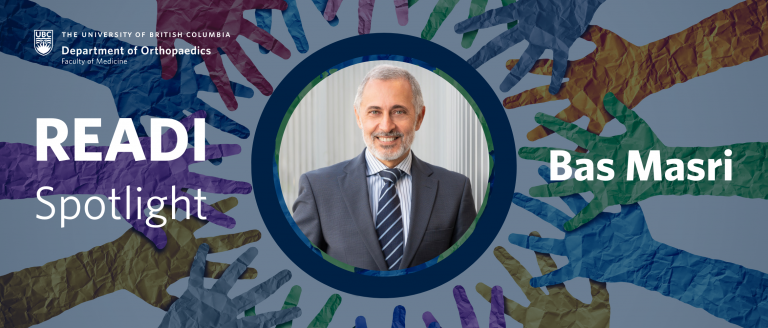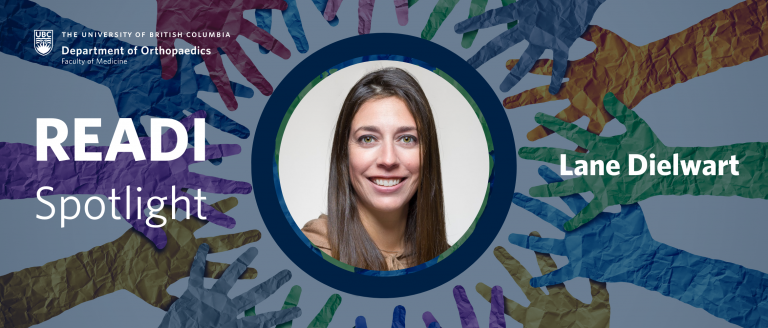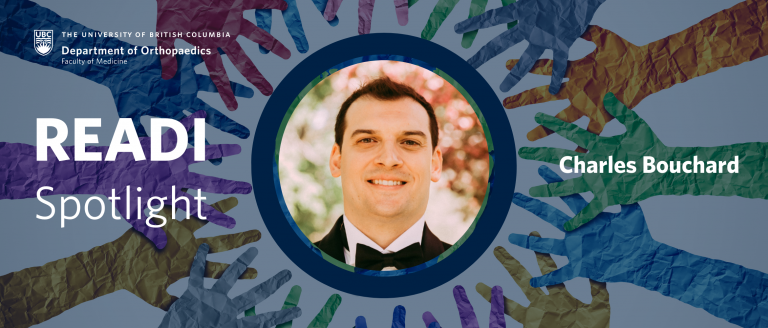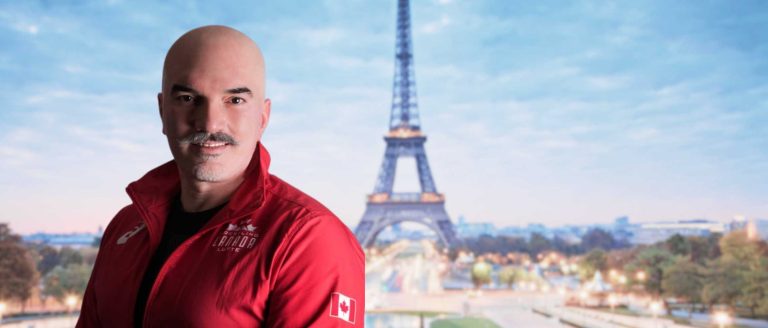By Olatioluwase (Ola) Olatona
Our bi-monthly READI Spotlight series features in-depth conversations with a UBC Department of Orthopaedics member about how respect, equity, accessibility, diversity, and inclusion (READI) appears in their life.
In our second READI spotlight of the year, we speak with UBC Orthopaedics Trauma Fellow, Dr. Charles Bouchard.
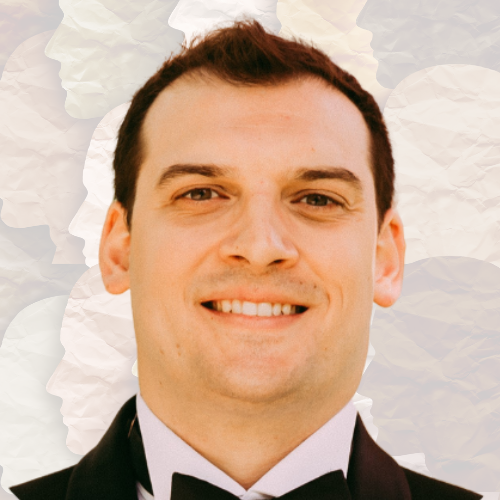
CHARLES BOUCHARD
UBC Orthopaedics Trauma Fellow
Site:
Vancouver
Tell us about your background and interest in orthopaedics.
I grew up in rural Alberta, in a small town called Wetaskiwin. I am the youngest of 5 children in my family and identify as someone of Indigenous (Metis) descent from my maternal Grandmother. I am also the first physician in my immediate and extended family. My interest in orthopaedics stemmed from my interest in sports and fascination with how the human body moved. From this, I decided that I wanted a career that played a pivotal role in helping people overcome injury or accidents. Another experience that contributed to my interest in orthopaedics was the opportunity to observe a knee arthroscopy at 14 years old, as a result of some of my dad’s connections, who worked maintenance at the hospital. Interestingly, my grade 9 yearbook quote was “In 10 years, I see myself in medical school, studying to be a surgeon” and 10 years later, though I was not yet a surgeon, I was well on my way towards that goal.
I completed my undergrad at the University of Calgary in Kinesiology and subsequently completed my medical school in Kingston at Queen’s University. Once in medical school, I was further drawn to being an orthopaedic surgeon because of the immediate impact and benefit to patients that I observed. Fortunately, I matched to the University of Alberta Orthopaedic Surgery residency following medical school. I just completed my trauma fellowship here at UBC and will be headed to an arthroplasty fellowship in Toronto, Ontario.
What does READI mean to you?
It’s a broad and vague term, but the crux is that it represents fairness to all and identifies where there have been inadequacies within medicine. I feel that many people don’t understand what inequity is – if there is no equity then the playing field is not levelled and not everyone has the same opportunities provided to them. The whole purpose of EDI is to identify the people that don’t have the same advantages as people in other circumstances. As someone of Indigenous descent, I know that there aren’t as many Indigenous physicians as possible and there are even less Indigenous orthopaedic surgeons, when compared to the proportion of the general population. This is why we are trying to create awareness to create actions. EDI also represents an umbrella term for addressing racism against minorities, especially Indigenous peoples, and it’s a step towards our rights and recognition in conjunction with the Truth and Reconciliation Commission guidelines. I look at EDI as being a new wave movement for addressing the inadequacies that should not have existed this long into the 21st century even though I understand that it is a slow process.
What role do you see yourself playing in improving READI in orthopaedics and in healthcare overall?
Just taking myself as an example, my role just being of Indigenous descent, I have taken it upon myself to engage in the mentorship program through the Indigenous Physicians Association of Canada- this includes either being in a mentee or mentor role. I am involved with one med student and two residents at the moment and my commitment there is to help be a role model that can show how we are paving the way for upcoming generations with the ultimate goal of achieving a fair and equitable chance for those in a minority. Regarding orthopaedics specifically, it’s a little bit more complex. I know of two orthopaedic surgeons in my entire process of going through medical school that are of Indigenous descent. I’m not sure if it’s because there are very few people self-reporting or if there truly is a lack of representation. With that being said, there are some upcoming learners of Indigenous descent who are in orthopaedics. As I am getting onto an early career as a surgeon, I am going to continue the mentorship piece by striving to make sure that Indigenous learners have the chance to advance their careers. I recognize that we are in the early phases of EDI so there are going to be many missed opportunities to represent minorities, but I am hopeful that a slow change will ultimately yield a system that provides fair and equitable opportunities for minorities.
What’s next for you?
I am looking forward to moving to Toronto for the fellowship to further progress my skills and have another skillset to become a very qualified surgeon for great job opportunities. I am excited to live in a metropolitan city and explore the country a bit better with my wife.
When you’re not working, what do you enjoy doing?
I love golf! Every orthopaedic surgeon has to say they love golf. In the wintertime, I enjoy skiing and I love to be at the lake in summer for water sports. It’s been a long time, but I really enjoy hunting and fishing and it’s been a goal of mine to get back to it once I get settled down again.
